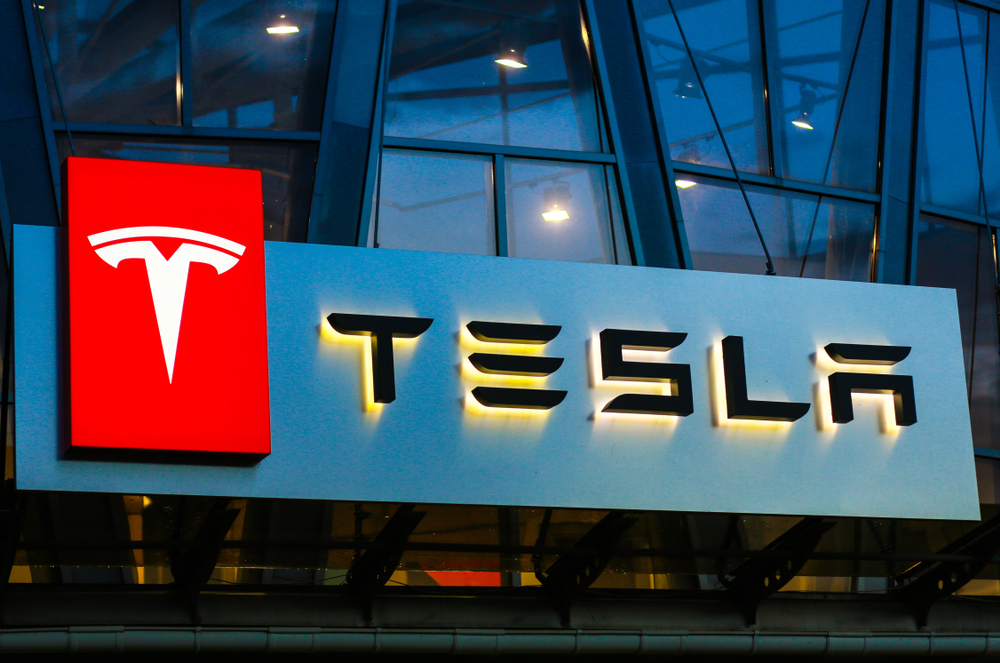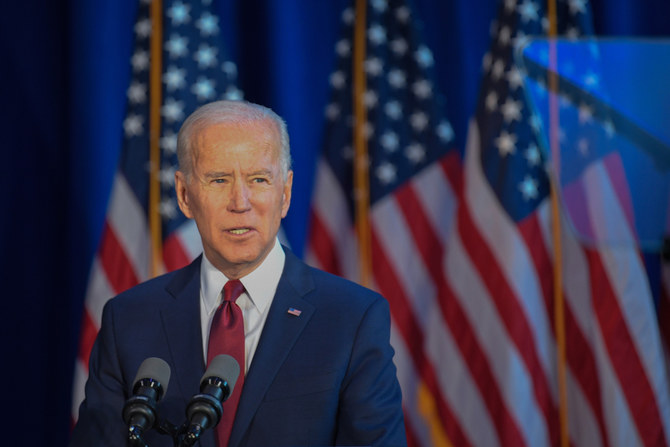US President Joe Biden rarely mentions electric car maker Tesla Inc. in public. But privately his administration has leaned on the company to help craft a new policy to allow electric vehicles to benefit from the nation’s lucrative renewable fuel subsidies, according to emails reviewed by Reuters.
The Biden administration contacted Tesla on its first day in office, marking the start of a series of meetings on the topic between federal officials and companies linked to the EV industry over the months that followed, according to the emails.
The administration’s early and extensive outreach reflects that expanding the scope of the US Renewable Fuel Standard to make it a tool for electrifying the nation’s automobile fleet is one of Biden’s priorities in the fight against climate change.
The RFS, which dates back to 2005, is a federal program that requires transportation fuel sold in the United States to contain a minimum volume of renewable fuels. Until now, it has been primarily a subsidy for corn-based ethanol.
The White House’s outreach to Tesla also shows that, despite a public grudge match between Biden and Tesla founder Elon Musk, the Biden team tried early on to involve the carmaker in one of its key policy pushes. Biden has set a target to make half of all new vehicles sold in 2030 zero-emissions vehicles.
The US Environmental Protection Agency, which administers the RFS, is expected to unveil proposed changes to the policy sometime this year, defining new winners and losers in a multibillion-dollar market for credits, known as RINs, that has supported corn growers and biofuels producers for more than a decade.
Early signs are that the administration is leaning toward a rule that benefits carmakers like Tesla, giving them the greatest access to so-called e-RINS, or electric RINs. But the reform could also spread the subsidy to related industries too, like car charging companies and landfills that supply renewable biogas to power plants, according to industry players.
“We have heard through the grapevine that car companies are really, really going to like this rule,” said Maureen Walsh, director of federal policy with the American Biogas Council, speaking at a conference in May. But she added: “We have all been scrapping at that pile.”
The idea of including electric vehicles in the RFS has been under consideration for years, but gained steam as Biden’s transition team zeroed in on EVs as a job-friendly solution to the climate crisis.
Transport accounts for more than a quarter of US greenhouse gas emissions.
The White House did not respond to requests for comment.
The EPA said it was consulting “all interested stakeholders” in its RFS policy review.
The current RFS requires oil refiners to blend ethanol and other biofuels into the fuel pool or buy RINs from those who do. That policy has spurred an economic boom in Farm Belt states. But it has also angered environmental groups who say the extra corn production damages land and water while prolonging the era of the internal-combustion engine.
Friends of the Earth, an environmental group, has voiced disapproval over an e-RIN program. The group sees the RFS as a policy that has failed to increase production of new generation lower-carbon fuels, while also harming the environment. It also sees expanding the program as a slippery slope toward increasing the use of feedstocks for wood and wood waste, which can generate electricity.
“The RFS should be reformed to tackle giveaways for dirty corn ethanol. It shouldn’t be expanded to include new giveaways for factory farming and woody biomass,” said Friends of the Earth spokesman Lukas Ross.
Turn To Tesla

(Shutterstock)
On the morning of Biden’s presidential inauguration in January 2021, EPA staffer Dallas Burkholder emailed a top Tesla lobbyist, Rohan Patel, to set up a meeting on how to incorporate electric cars into the RFS, according to the documents reviewed by Reuters. They scheduled a meeting for a week later, records show.
Since then, the Biden EPA has had additional meetings on the topic with Tesla, groups representing biogas producers like Waste Management Inc. and Republic Services Inc. and charging station companies like ChargePoint Holdings Inc., according to the documents.
The EPA has also set up at least one meeting with White House staff members, including climate adviser Ali Zaidi, to discuss the reforms, according to the emails.
The Biden White House has been an unapologetic supporter of the EV industry, pinning much of its climate hopes on getting more electric cars on the road. The bipartisan infrastructure bill that passed last year included $7.5 billion for new EV charging stations and Biden has sought to reinstate expired tax credits to help consumers pay for new vehicles.
Even so, Tesla’s CEO, Musk, has often been at odds with the White House, sending out harsh tweets directed at Biden. In February, Biden publicly acknowledged the role of Tesla in EV manufacturing, after Musk repeatedly complained about being ignored.
What Everyone Wants
Tesla is seeking changes to the RFS that will allow it to earn renewable fuel credits based on kilowatt hours driven or similar metrics, according to two sources familiar with the plan. The company has also explored partnerships with biogas-producers to give them leverage in whatever market emerges from the new rule, the sources say.
Tesla did not respond to requests for comment for this story.
Members of the car-charging industry, meanwhile, are also pushing for a share.
Matthew Nelson, a lobbyist with Electrify America, a charging company trade group, wrote to the EPA in October and told them that e-RINs would do more to enable Biden’s 2030 goals of 500,000 charging stations and 50 percent EV sales than any other policy, according to the emails. He added that charging companies need the credit to compete with gasoline.
The United States currently has about 48,000 charging stations, concentrated around coastal regions, according to Department of Energy data.
Biogas producers, like landfills, also want credits, arguing they provide renewable fuel to the grid that generates the power for electric vehicles.
Biogas-derived electricity is already eligible for generating RINs. But the EPA has never approved an application from the industry because it has yet to determine the best way to trace the power entering EVs back to its origin.
In 2020, landfill gas generated about 10 billion kilowatt hours of electricity, or 0.3 percent of US utility-scale power.
“We feel that implementing the electricity program in the RFS aligns well with the Biden administration’s climate goals,” Carrie Annand, executive director of the Biomass Power Association, wrote to the EPA, according to the documents.






















